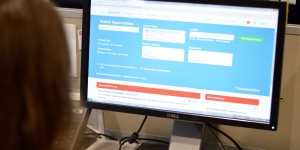It’s happening. You’re graduating this year. Don’t worry if you feel a bit lost, LSE Careers can help! Here are our top tips to get yourself employed after you’ve graduated:
1. Make an action plan
It may be tempting not to, but remember to make the most of your free time! The first and best step when starting your career is to make a plan of what you want to do. If you don’t know what you want, then look at our updated Career Builder which will help you navigate your career options.
Once you have a goal, then you can move onto achieving your career. You have a lot of resources available to you, so utilise them and your own skills. Look at our job hunting page as well to get started on your search.
2. Volunteer
Volunteering is a great way to both build on your own skills and help out your local community. This hands-on experience is a great way to complement your academic achievements, and can make you much more attractive to an employer.
You can talk to our Volunteer Centre if you’re not sure where to start, and if you want to have a talk about this you can book an appointment with our Volunteer Coordinator. If you’re ready to jump straight in, then you can search for volunteering opportunities on CareerHub straight away by selecting ‘Volunteering’ in the types of work on our opportunities tab.
3. Visit LSE Careers
Don’t worry if you haven’t secured a job for straight after you graduate yet. Here at Careers we can talk to you about almost anything related to careers. Book an appointment with one of our advisors, and they can go through your career options with you. In these appointments you can also go over applications, discuss interview techniques, and any number of other queries you may have.
Appointments are generally bookable on the day and are released at 9:30am each morning, with the exception of appointments before 12pm which can be booked the day before.
4. Network
You can network in a number of ways. One of the easiest is by using LSE Careers, as we have regular events with employers that continue until the end of term, and on a smaller scale over the summer. LinkedIn is also a good way to start networking, although we’ll discuss this in more detail next.
Our networking page will give you some tips and advice on the best way to present yourself. We also have blog posts on networking which should also be helpful for you.
5. Perfect your LinkedIn profile
LinkedIn is a great resource to both put yourself out there and actively search for opportunities. Having a profile on LinkedIn immediately puts you in the eyeline of employers, so making sure your profile is up-to-date and professional is essential.
Look at our page on using LinkedIn which can give you a great base onto which you can start your profile. We have a few blog posts with information on LinkedIn and social media too!
6. Work experience
You’re probably not going to get the job of your dreams without having had any work experience first. However, getting work experience is very possible when you know how. With the action plan you made earlier you’re going to have an idea of what sort of job you want to go into and hopefully some of the routes to get there.
With that in mind, start looking for work experience. This can range from internships, part-time and/or fixed-term work, and anything in between. Work experience is integral to being successful for dream-job applications, so even if you’ve got an amazing degree, you’ll probably need to start in entry positions before you can move on up.
7. Make your CV amazing
If you’re going to get a good job, you’re going to need a good application. Your CV is the foundation for that, so now you’ve finished exams you need to learn how to sell yourself and your skills to employers.
The best place to start is the CV section of our website, where you’ll find an information booklet dedicated to CVs and cover letters. Remember that you should always tailor your CV to the position that you’re applying for. If you want any help or pointers, then book an appointment with one of our careers consultants to help you do this.
8. Generate
If you’re going to spend the coming months working on your own business or startup, then Generate can help you! It’s also worth having a look at our startup resources, and make sure you follow Generate on Twitter for the latest updates.
9. Search CareerHub
CareerHub is here for you. We have hundreds of employers who advertise with us, and so there should be some great opportunities that appeal to you.
The opportunities tab on CareerHub allows you to search for anything. Whether you want to search for a particular job title, or just keywords that involve your skills, CareerHub has some great roles that should be of interest to you whatever your interests.
10. Stay positive
This is your time and this is your life: you’re potentially about to start the career that will be your calling forever. Don’t do something because you think you should, or because you think it will impress others.
Do what makes you happy, because if you love what you do and the people that you do it with then you’ll be both more content and better at your job.








